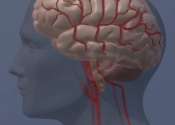New insights into how sleep helps the brain to reorganise itself
A study has given new insights into how sleep contributes to brain plasticity – the ability for our brain to change and reorganise itself – and could pave the way for new ways to help people with learning and memory disorders.
Oct 2, 2017
0
1115









